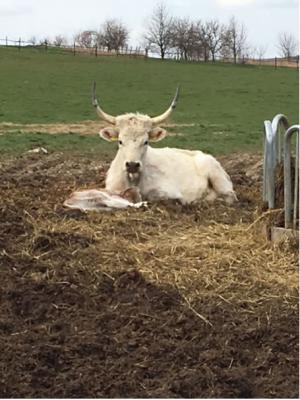A family farm used support from multiple Rural Development Programme (RDP) measures to ensure the farm’s viability and diversify towards a quality focused and profit-oriented business.

Zoltán Szedlák has been breeding cattle and producing crops since 1996 and in 2008, his wife joined him to run the family business. In 2009, they switched to organic livestock farming. Subsequently, they created a five-hectare leisure park called "Lámató Szalatnak" with the help of LEADER funding. It contains a pond, barns, llamas and a large green area. Their farm now consists of about 100 ha focusing on animal husbandry.
Improvements were essential to maintain the viability of the family farm. This has been done by producing quality products, rather than by increasing the quantity of production. The farm used Rural Development Programme (RDP) support from several measures, including conversion to/maintaining organic farming, agri-environment schemes and modernisation of cattle farms to fence the livestock. The objective was to increase the value of their agricultural products by setting up a small processing plant where they could process their own matured beef products.
The farm’s product range consists of various matured beef and pork products: ready to cook beef and sirloin steaks (tenderloin sirloin steaks, T-bone steaks, ribeye steaks), matured thighs, shoulder, and their organically produced beef. They also produce different sausages and salamis all made from Mangalica, a Hungarian breed of pig.
The farm expects to process between 10 to 15 animals per year for meat production. Under extensive grazing conditions it takes a little more than a year to reach the slaughter weight of an animal.
According to the business plan, the beneficiaries anticipate a net profit from meat production of around EUR 6 250 a year.
The farm’s main revenue comes from conventional crop production, including the direct payments, which amount to between EUR 30 000 and EUR 45 000/year.